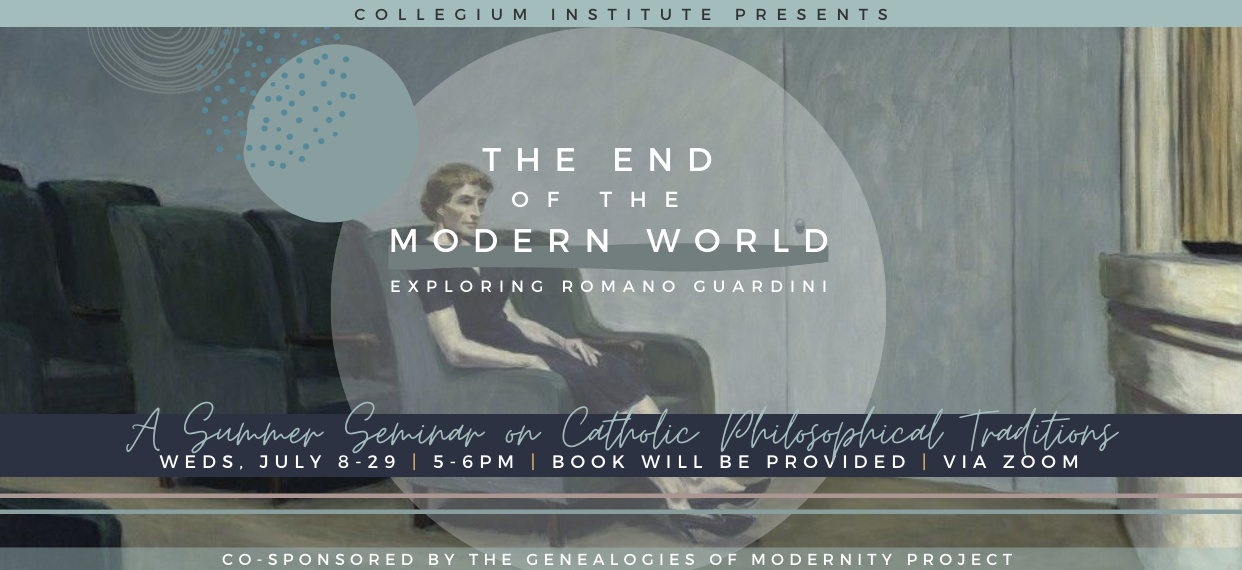
Genealogies of Modernity Project
Exploring stories of how we became modern. Asking what it means to be modern. Wondering about other possible modernities.
To do this the Genealogies of Modernity Project seeks to motivate and organize a critical, cross-disciplinary inquiry into influential narratives of the origins of “modernity” in the humanities. Sponsored by the Collegium Institute for Catholic Thought & Culture, based at the University of Pennsylvania, and the Beatrice Institute — based in Pittsburgh, the GenMod project recognizes that the stories we tell ourselves about the passage to modernity are many and often conflicting even within one discipline.
Attention to the complexity of the intertwined genealogies of the present opens the possibility to forge new relations to the past and discover resources for life-giving responses in the present. The journal and podcast offer a place for graduate students, early career and established scholars to parse these narratives and to make legible the intellectual and cultural "kinships" that often unconsciously subtend these narratives. This exploration is conducted through a variety of genres and voices, taking the form of accounts of genealogy, critical reviews, and more.
Find out more by clicking below to visit the Genealogies of Modernity Project website:
Connect with the GenMod team of faculty and editors to hear more about the project, as well as opportunities for collaboration. Get in touch here.
The GenMod journal features a variety of voices exploring the stories of how we became modern, from tiny houses to theodicy. Check it out here.
All episodes from Season 1 are available now. Check out the episodes here.
Events
Click on the images below for more information on upcoming and past events run by or co-sponsored by the Genealogies of Modernity Project.

GenMod Summer Seminars
These week-long summer seminars have brought together graduate students and scholars from around the globe to investigate cross-disciplinary narratives of when, where, and how “modernity” took shape as a way to reveal how the past has helped to shape the present and to understand better how these various approaches can provide resources to shape the future ahead of us. To find out more about these seminars click below:









